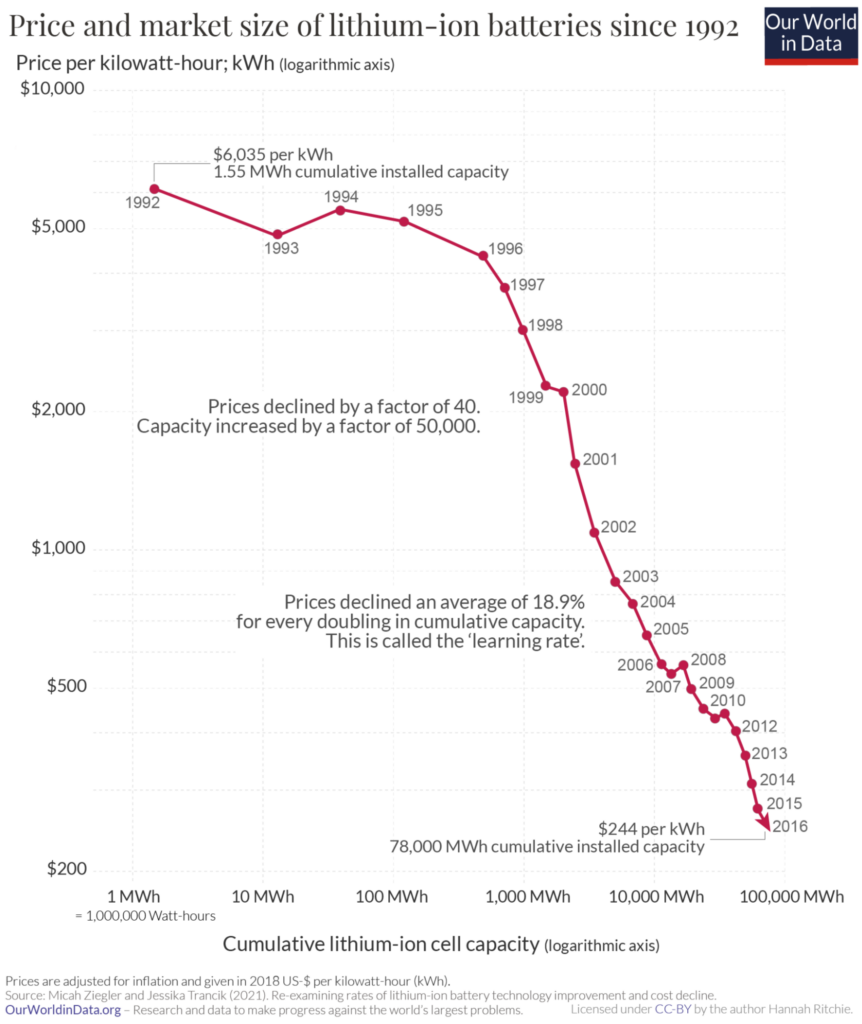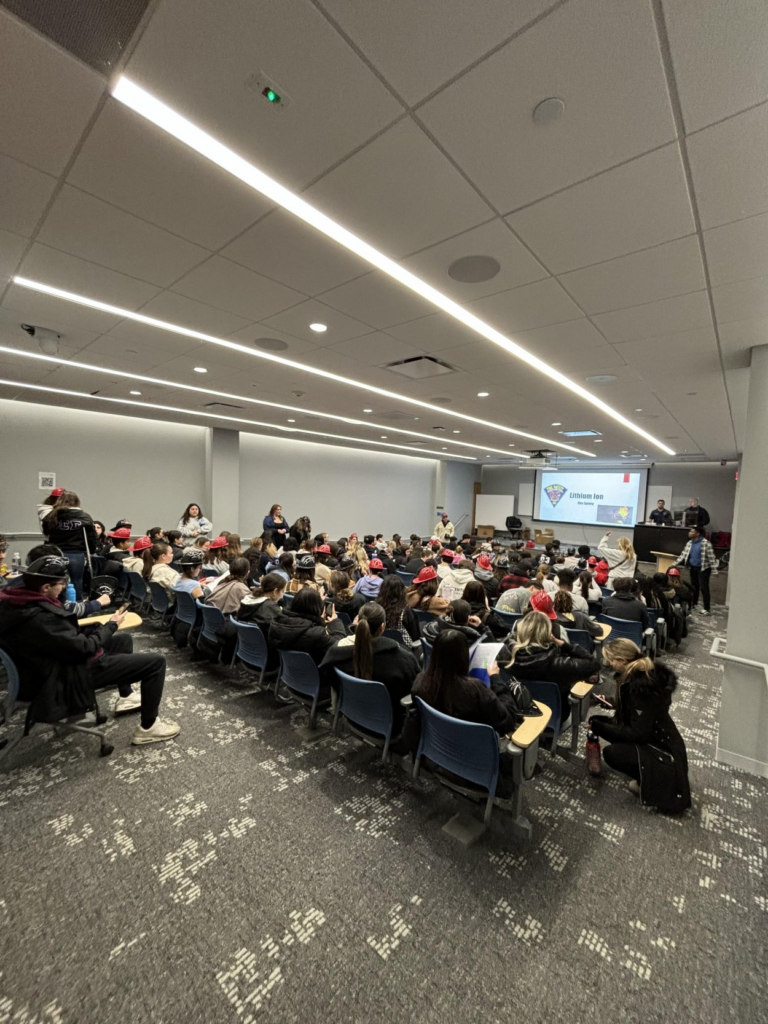
Guest post by Treetown Tech
In our rapidly evolving technology landscape, the demand for lithium-ion (Li-ion) batteries continues to surge, driving innovation across various industries. However, a critical bottleneck threatens to impede progress: the shortage of skilled professionals in the Li-ion battery sector in North America.
According to the US Department of Energy Li-Bridge Report, the United States (and much of the world outside of China and South Korea) is unprepared for the mass industrialization, wide rollout, and use of advanced battery technologies. The report identified eight key challenges that are preventing the development of a robust and sustainable lithium battery supply chain in the U.S., including “lack of R&D and pilot-scale line capacity for the commercialization of new technology” and a “lack of domestic technical know-how, especially in midstream activities.”
In this post, we’ll summarize the root causes of the skills gap, how it is affecting the North American battery industry, and what Treetown Tech is doing about it.
The Root Causes of the Expertise Shortage
Several factors contribute to the scarcity of Li-ion battery engineering and practical technical expertise in the U.S.
- Educational programs specializing in battery technology are limited and are traditionally associated with M.S. and Ph.D. programs. While many universities offer courses in general electrical and chemical engineering, few provide specialized training focused on battery technology. This gap in education leaves a shortage of graduates equipped with the specific skills needed in the battery industry.
- The lack of standardized certifications for battery technical personnel means there is no clear pathway for personnel to demonstrate their qualifications in this niche field. Unlike more established tech disciplines, battery technology does not yet have widely recognized certification programs that ensure a consistent level of expertise among practitioners. Rather, expertise comes almost purely from lessons learned on the job. This means that expertise can vary widely depending on where one worked and what projects they were lucky enough to get on.
- Furthermore, intense competition from other fast-growing industries for STEM talent exacerbates the shortage. Fields like software development, artificial intelligence, robotics, and renewable energy are all vying for the same pool of skilled engineers and scientists, making it challenging for the battery industry to attract and retain top talent – especially when there are so few official educational and certification programs.

The Impact on Innovation and Competitiveness
The consequences of this talent gap are profound. Companies are struggling to find qualified individuals capable of designing, manufacturing, and optimizing Li-ion batteries to meet the evolving needs of consumers and businesses. This shortage hampers innovation, leading to missed opportunities for growth and competitiveness in the global market.
Additionally, reliance on foreign talent and outsourcing poses risks to national security, economic resilience and Intellectual Property. Dependence on external sources for critical technology expertise can lead to vulnerabilities in supply chains and hinder the ability to respond swiftly to technological advancements or market changes.

Treetown Tech’s Commitment to Bridging the Gap
Treetown Tech is facing down this challenge with a commitment to filling the skills gap in Li-ion battery engineering. By offering specialized battery engineering expertise, we enable our clients to focus on their core competencies while leveraging our proficiency in designing, manufacturing, testing, and optimizing Li-ion batteries.
At Treetown Tech, we recognize the importance of a multidisciplinary approach to battery engineering. Our team comprises experts from diverse backgrounds, including electrical engineering, mechanical engineering, and chemistry, ensuring a comprehensive understanding of the complexities involved in battery technology. Battery Team Lead Chris Silkowski recently said, “battery engineering is both science and art”. We take this to heart as we leverage multiple disciplinary skills – including passion and creativity – to achieve success for our clients.
We also prioritize continuous learning and professional development. By partnering with leading academic institutions and participating in industry groups, we stay at the forefront of the latest advancements in battery technology. This commitment to ongoing education ensures that our team remains equipped with cutting-edge knowledge and skills.
Moreover, Treetown Tech is dedicated to fostering collaboration with our clients. Our collaborative approach empowers companies to overcome talent shortages and drive innovation, ensuring they remain at the forefront of advancements in energy storage technology. By working closely with our clients, we tailor our solutions to meet their specific needs, whether it’s developing new battery chemistries, optimizing manufacturing processes, or enhancing battery management systems.
Conclusion
The shortage of Li-ion battery engineering expertise in the United States presents a significant challenge to the industry’s growth and innovation. However, Treetown Tech’s dedication to bridging this talent gap through specialized expertise, continuous learning, and collaborative partnerships offers a robust solution. By empowering companies to leverage our proficiency in battery technology, we help drive progress and ensure a competitive edge in the global market. Let’s work together to build something great for you.

About Treetown Tech
Treetown Tech provides deep knowledge and execution in cell chemistries, cell products, battery pack design, development, prototyping, production, and battery management systems (BMS). Our battery expertise and services are complemented by Treetown Tech’s extensive product development and engineering capabilities including software, electronics, and mechanical system design, located in a state-of-the-art facility in Ann Arbor, Michigan. You can learn more about our battery engineering solutions here and the rest of our capabilities here.